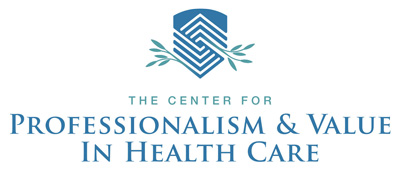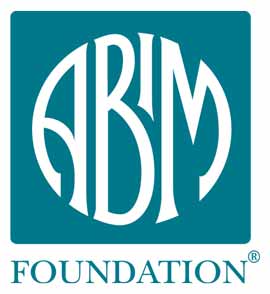
Trust in the medical profession – physicians in particular – has dropped significantly in recent years. A January 2025 Gallup poll cites a 14 percent decline in physician trust between 2020 and 2024, while a recent study published in JAMA Network Open puts that number at about 40 percent for physicians and hospitals. Both cite a historical high in the 70 percent range during the COVID-19 pandemic that has plummeted in subsequent years.
The American Board of Family Medicine (ABFM) and the American Board of Internal Medicine (ABIM) Foundation are working to build that trust.

In 2018, ABFM and its foundation created the Center for Professionalism & Value in Health Care (CPV) designed to address issues of professionalism and value as a specialty and in concert with other medical specialties within the American Board of Medical Specialties and other professions. The aim of CPV is to investigate the current understanding and value of the social contract. One key element of this ongoing investigation is objectively evaluating the essential elements of professionalism that can be effectively used to build and maintain public trust.
CPV evaluated the readiness of several patient-reported physician trust measures and published the Milbank paper on why it selected the Wake Forest Trust Measure for implementation in the PRIME Registry to codify its relationship to continuity, comprehensiveness, and care quality. The PRIME Registry allows testing of trust for a better understanding of how it relates to core primary care functions and outcomes.

The ABFM Professionalism Committee implemented a major revision of its Guidelines on Professionalism, Licensure, and Personal Conduct in 2021 (updated in 2022) to consider more special circumstances of physicians. The goal is to be fairer to individual family physicians. At the same time, ABFM has begun to engage the specialty on challenges to professionalism, such as sexual misconduct, inappropriate opioid prescribing, misinformation, and inappropriate supervising of medical staff. These contribute to the fraying of the social contract of trusted care and represent ABFM fulfilling its responsibility to help the profession regulate itself.
This winter ABFM ratified its 2025-2029 Strategic Plan. ABFM plans to:
- Learn what physicians and the public mean by the word professionalism and the appropriate language to use when communicating its intended message.
- Promote change in the clinical environment which makes it easier for family physicians to be professional.
- Explore a new compact or statement of core values that can be applied across family medicine and beyond.
- Reframe professionalism as a core competency and provide tools for family physicians to use in improving their professionalism.
- Reimagine the teaching of professionalism throughout the continuum of a physician’s career. The Society of Teachers of Family Medicine will be developing and disseminating residency curricula/assessments, and ABFM will develop a learning collaborative to identify and spread innovation in teaching.
- Advocate for positive professionalism and the social contract of trust.

Created by ABIM in 1989, the ABIM Foundation has long been dedicated to advancing the values of medical professionalism. Starting in 2002 with the publication of Medical Professionalism in the New Millennium: A Physician Charter, continuing in 2012 with Choosing Wisely®, a campaign that for 11 years encouraged meaningful conversations between clinicians and patients to ensure that care was evidence-based, necessary, and free from harm, and reinforced in 2021 with Building Trust, a national initiative to elevate trust and trustworthiness as a core strategy for improving health care.
More than two decades after the publication of the Charter, the ABIM Foundation is reexamining its mission given the evolving threats to medical professionalism, including market and bureaucratic forces that have reshaped the practice and delivery of care, as well as growing concerns that the concept of professionalism has been misused in ways that contribute to physician burnout and deepen inequities. The ABIM Foundation is engaged in a broad listening campaign including one-to-one expert interviews, focus groups, literature reviews, and stakeholder surveys. As the ABIM Foundation synthesizes the findings from this discovery phase, it remains committed to ensuring that its mission and work contribute valuably to an evolving health care landscape.
A key touchpoint in this effort will be its annual Forum. For more than 20 years, the ABIM Foundation has hosted a Forum to bring together experts to explore key aspects of medical professionalism from equity and affordability to quality, trust, and medical education. At this year’s Forum – Reimaging Professionalism: Hope in a Shifting Medical Landscape – the ABIM Foundation will take a closer look at the intersection of professionalism and trust, examine ethical challenges amid transformational shifts, assess how medical education prepares future physicians to embody professional values, and discuss a modern professionalism framework that upholds core values while providing actionable next steps to navigate today’s challenges.
The cornerstone of public trust is how physicians are collectively perceived as a profession. Both CPV and the ABIM Foundation are striving to strengthen that perception within society.
© 2025 American Board of Medical Specialties
Read the latest issue of ABMS Insights and sign up to receive future updates about board certification.
-
Read More:
- ABMS Insights |
- Member Boards |
- Professionalism |
